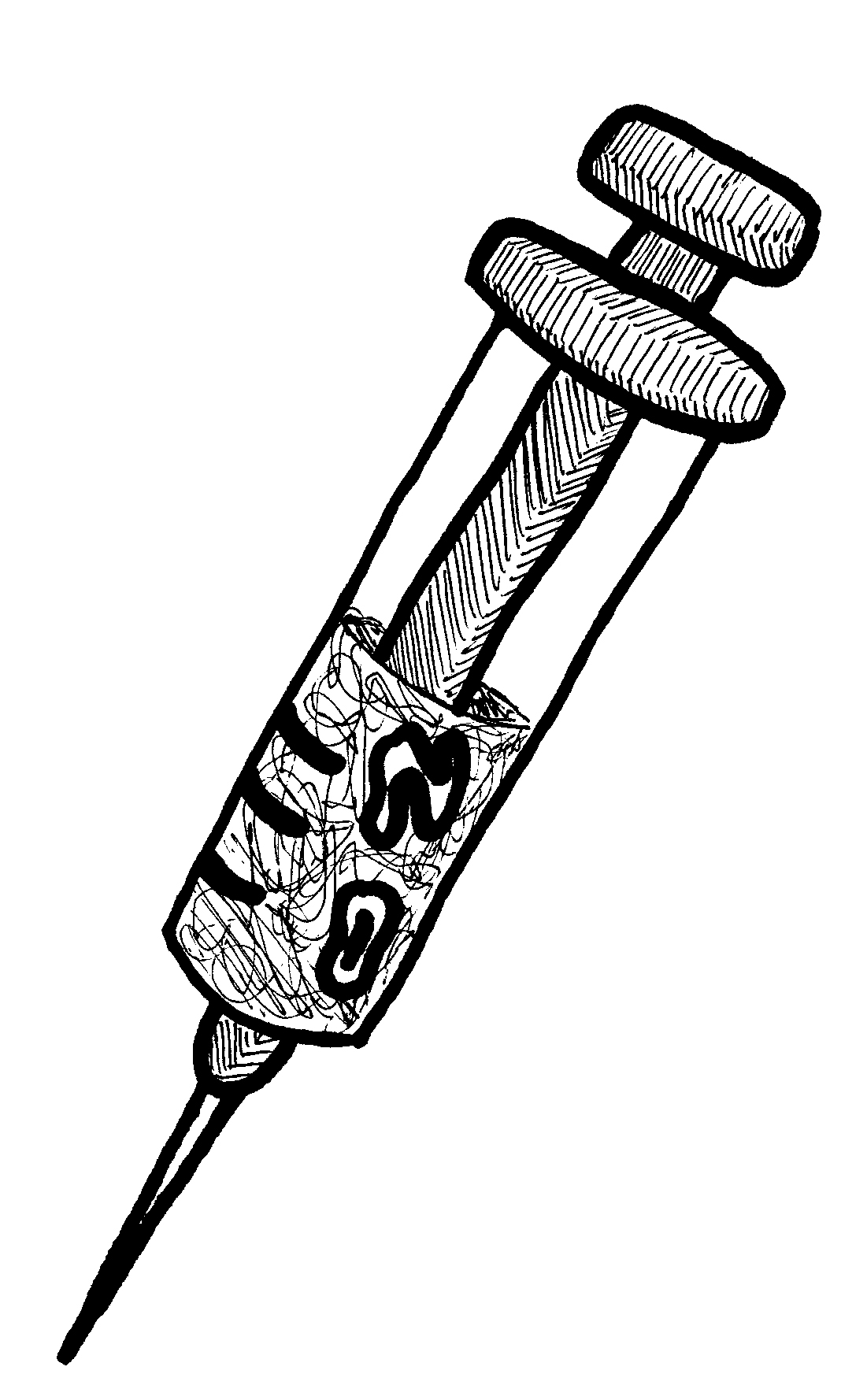No on Question 1: protect our community’s health
February 14, 2020
 This
piece represents the opinion of the author
.
This
piece represents the opinion of the author
.
 Alex Burns
Alex BurnsDriving around Brunswick and surrounding communities in Maine, you may have noticed some signs in people’s yards: “Yes on 1: Reject Big Pharma.” At a first glance, this seems to be a perfectly reasonable view to hold. The pharmaceutical industry has consistently come under fire for corporate greed through practices such as flooding markets with prescription opioids and jacking up the prices of crucial, life-saving drugs. Any reasonable citizen should surely be concerned with the abuses of power by this massive industry.
But as I read up on Question 1 in preparation for the March 3 vote, I found that this ballot initiative—much to my surprise—has little to do with curbing the influence of a powerful industry. Rather, the proponents of “Yes on 1” have deliberately misconstrued the popular tides against “Big Pharma,” siphoning support into a cause which is much more polarizing: the anti-vaccination movement. With this misleading advertising material abounding in our community—and, further, the confusing wording on the ballot—I want to set the record straight about what Question 1 actually asks.
Question 1, formally the Religious and Philosophical Vaccination Exemptions Referendum, seeks to overturn Legislative Document 798, which, signed into law by Governor Janet Mills this past May, eliminates religious and philosophical exemptions from vaccination requirements for schools and workplaces. Thus, a “Yes” vote on Question 1 would overturn this new law and would allow for vaccine exemptions, whereas a “No” vote would uphold the law and prevent exemptions.
The argument for “Yes on 1” fails on both of its two main premises: that refusing vaccines effectively rejects Big Pharma and that it is a necessary and appropriate way for one to express one’s philosophical and religious viewpoints.
Though pharmaceutical companies may come under scorn for many of their unethical practices, their manufacturing and distribution of vaccines is not an area deserving of further scrutiny. Vaccines only account for between two and three percent of the pharmaceutical industry. The profits derived from these products do little to bolster corporate profits; the money for pharmaceutical companies lies almost entirely in other products, and thus the opposition against Big Pharma would more appropriately focus on these other areas. Further, there is little profit to be made from vaccines. The work to develop such products is particularly cumbersome and costly, and price caps on vaccines prevent companies from over-profiting on their work. Simply put, refusing vaccines is an ineffective way to stand up to Big Pharma, and opponents can and should focus on other industry practices.
In another vein, it’s true the freedom to hold certain philosophical and religious views is foundational to American democracy. The constitutional right to such beliefs, however, does not and should not extend to cases where these beliefs threaten public health. Last year, Maine’s non-medical opt-out rate for vaccinations was at an all time high. At the same time, the state reported that incidents of whooping cough were the worst in the nation. This strongly suggests that the state’s tendency to opt out of immunization has caused a public health issue which was ultimately largely preventable. The decision to opt out for oneself or one’s children not only threatens the health of one’s family, but of one’s community as a whole, as the effectiveness of vaccines hinges on a high amount of people utilizing such resources. This is because diseases can much more easily spread from the unvaccinated to people with weaker immune systems, especially children and those who are immunosuppressed due to other medical issues. Thus, the personal beliefs leading to the opting-out of vaccination are harmful and, also, not deserving of constitutional protection. Multiple Supreme Court cases—including Prince v. Massachusetts, Zucht v. King and Henning Jacobson v. Commonwealth of Massachusetts—have held that personal beliefs are not deserving of protection if they threaten the health of the community as a whole. This law as it stands does not attack people for exercising their beliefs, but rather upholds the status quo of Constitutional Law.
Anyone should be free to choose their religion and philosophy and to work against the unethical practices of Big Pharma. But rejecting vaccines is not the way to go about exercising such principles. High vaccination rates are vital to the health of our community, and so I urge all Maine voters to vote “No” on Question 1 on March 3.
Tim Miklus is a member of the Class of 2021.
Comments
Before submitting a comment, please review our comment policy. Some key points from the policy:
- No hate speech, profanity, disrespectful or threatening comments.
- No personal attacks on reporters.
- Comments must be under 200 words.
- You are strongly encouraged to use a real name or identifier ("Class of '92").
- Any comments made with an email address that does not belong to you will get removed.

This is an well-written, informative article. Keep up the excellent journalism, Tim!
Thank you for this excellent letter, Tim, that correctly spells out the real issues in the upcoming vote. I will be voting NO on 1 to protect all Mainers, especially those who are immunocompromised. It is so selfish and unfair to put those at risk who have no way to protect themselves by getting vaccinated. Religion and philosophy should have nothing to do with religion. I’m voting #NoOn1 March 3 to #ProtectMainesChildren